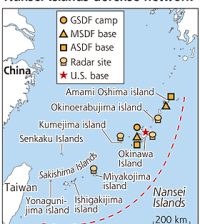- Washington “follows with interest” Morocco’s openness onto Africa (John Kerry)Posted 12 years ago
- The trial of South African Paralympic champion Oscar Pistorius opened in Pretoria on Monday.Posted 12 years ago
- USA welcomes efforts of King Mohammed VI in MaliPosted 12 years ago
- Egypt’s population reaches 94 millionPosted 12 years ago
- Mugabe celebrates his 90thPosted 12 years ago
- Moroccan Monarch to Build a Perinatal Clinic in BamakoPosted 12 years ago
- King Mohammed VI handed a donation of bovine semen for the benefit of Malian breeders.Posted 12 years ago
- Moroccan King’s strategic tour to Africa: Strengthening the will of pan African Solidarity and stimulating the south-south cooperation mechanisms over the continentPosted 13 years ago
- Senior al-Qaida leader killed in AlgeriaPosted 13 years ago
- Libya: The trial of former Prime Minister al-Baghdadi AliPosted 13 years ago
Mali Faces Mounting Pressure as JNIM Expands Operations and Fuel Blockades Deepen Crisis
Mali is confronting a deepening security and economic crisis as Jama’at Nusrat ul-Islam wa al-Muslimin (JNIM), an al-Qaida-affiliated armed group, intensifies its activities across the country. In recent weeks, JNIM has targeted transport routes used by fuel tankers, severely disrupting supplies to Bamako and other regions, contributing to widespread shortages and growing instability.
Escalating Tensions and Fuel Blockades
The blockade of key roadways connecting Mali to neighboring countries such as Ivory Coast, Mauritania, and Senegal has left the country facing one of its worst energy crises in years. Truck drivers and soldiers have reportedly been attacked or abducted, and fuel scarcity has brought large parts of Bamako to a halt. Long queues have formed at gas stations, many businesses and schools remain closed, and food prices continue to rise amid electricity shortages.
Foreign governments, including the United States, Germany, Italy, and Australia, have issued travel advisories urging their citizens to leave Mali due to the unpredictable security environment. Analysts warn that the deteriorating situation could exacerbate internal pressures within the country’s leadership.
Political and Security Landscape
Since 2020, Mali has experienced two military takeovers led by Colonel Assimi Goïta, who currently heads the transitional government. Elections initially scheduled for early 2022 have been repeatedly postponed, while the transitional authorities have continued to face challenges in stabilizing the country.
JNIM, active since 2017, has expanded its influence in rural areas and along border regions, carrying out attacks against military convoys and enforcing its own local governance in areas under its control. Reports from international organizations, including Human Rights Watch, have described the establishment of parallel judicial systems applying strict interpretations of Islamic law.
According to data from the Africa Center for Strategic Studies, the ongoing insurgency has claimed more than 17,700 lives since 2012, with a sharp increase in fatalities recorded after 2020. JNIM’s operations have also extended beyond Mali’s borders, reaching parts of Benin and Nigeria in coastal West Africa.
Regional and International Dynamics
Mali’s current government has sought to strengthen security cooperation with neighboring Burkina Faso and Niger, signing a mutual defense pact earlier this year. However, its withdrawal from the Economic Community of West African States (ECOWAS) has limited access to regional support mechanisms.
At the same time, the presence of foreign military contractors and pro-government militias has drawn international scrutiny amid allegations of human rights violations during counterinsurgency operations. Several diplomatic missions have reduced their presence in Mali, reflecting the country’s growing isolation from traditional partners.
Outlook and Uncertainty
Observers note that Mali’s political and security trajectory remains uncertain. While some voices within civil society have called for renewed dialogue involving religious leaders and local communities, others warn that the worsening humanitarian and economic conditions could further erode public confidence.
Analysts such as Ulf Laessing, head of the Konrad Adenauer Foundation’s Sahel program in Bamako, caution that the coming weeks may be critical. “It’s difficult to see how the capital can be resupplied in sufficient quantities,” he said, noting that existing reserves are running low.
With mounting fuel shortages, regional instability, and ongoing insurgent activity, Mali stands at a precarious juncture—one that will test both the resilience of its institutions and the effectiveness of regional frameworks in responding to the challenges unfolding in the Sahel.




